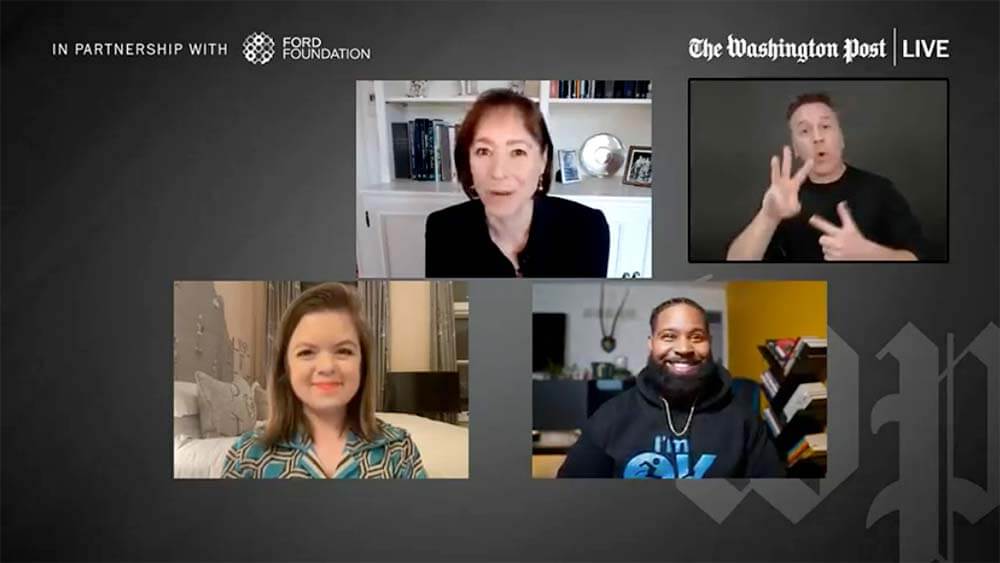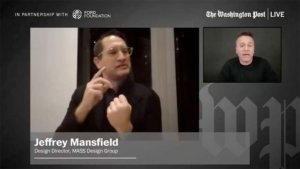
Moderator Frances Stead Sellers (top left), and her guests, Sinead Burke (bottom left) and Wesley Hamilton (bottom right), described their appearance for the hearing impaired during a recent Disability in America webinar. The virtual event included captioning and an American Sign Language translator.
The Washington Post hosted a Disability in America webinar in late November exploring how disability drives innovation, featuring architect Jeffrey Mansfield, entrepreneur Wesley Hamilton, and founder and CEO of Tilting the Lens Sinead Burke.
Burke is an Irish writer, academic, and disability activist who, as a little person, advocates for fashion and design inclusivity — and whose 2017 TEDNYC talk, “Why design should include everyone,” has more than 1.5 million views.
After being paralyzed from the waist down in a random shooting, Hamilton founded the nonprofit Disabled But Not Really to help instill in others who live with disabilities “a limitless mindset.”
And Mansfield, who was the first speaker, is a design director at MASS Design Group who was born deaf and whose work explores the relationships between architecture, landscape, and power.

Jeffrey Mansfield, design director for MASS Design Group, was the first guest on the Disability in America webinar. Mansfield, who is deaf, communicated using sign language.
As you may expect of a webinar featuring a deaf architect, this virtual event included captioning and an American Sign Language translator. But Washington Post Senior Writer Frances Stead Sellers, a who served as the webinar’s moderator, kicked the webinar’s accessibility level up a notch by doing one simple thing to implicitly acknowledge those who may have been listening to the webinar but not watching — as well as those participants who are visually impaired: She gave a brief visual description of herself and asked each participant to do the same when introduced, without calling out whom those details would benefit.
“I am an Anglo American woman,” Stead Sellers said at the beginning of the webinar. “I have shoulder-length brown hair and brown eyes. I am wearing a black jacket, and I am sitting in front of a white bookcase. And Jeffrey, over to you now — maybe you could give a description of yourself.”
“Yeah, sure,” Mansfield responded. “I am a white man, middle aged. I have dark brown hair, a black coat, and clear glasses, and I am sitting in front of a white wall with a window to my left. It is evening time where I am at. Currently I am using American Sign Language as my primary language and has been since birth. I am deaf.”
It sent a simple and powerful message that you can make a virtual event more accessible for a particular segment of the audience without added expense and technology. And without making it a big deal.
Michelle Russell is editor in chief of Convene.
